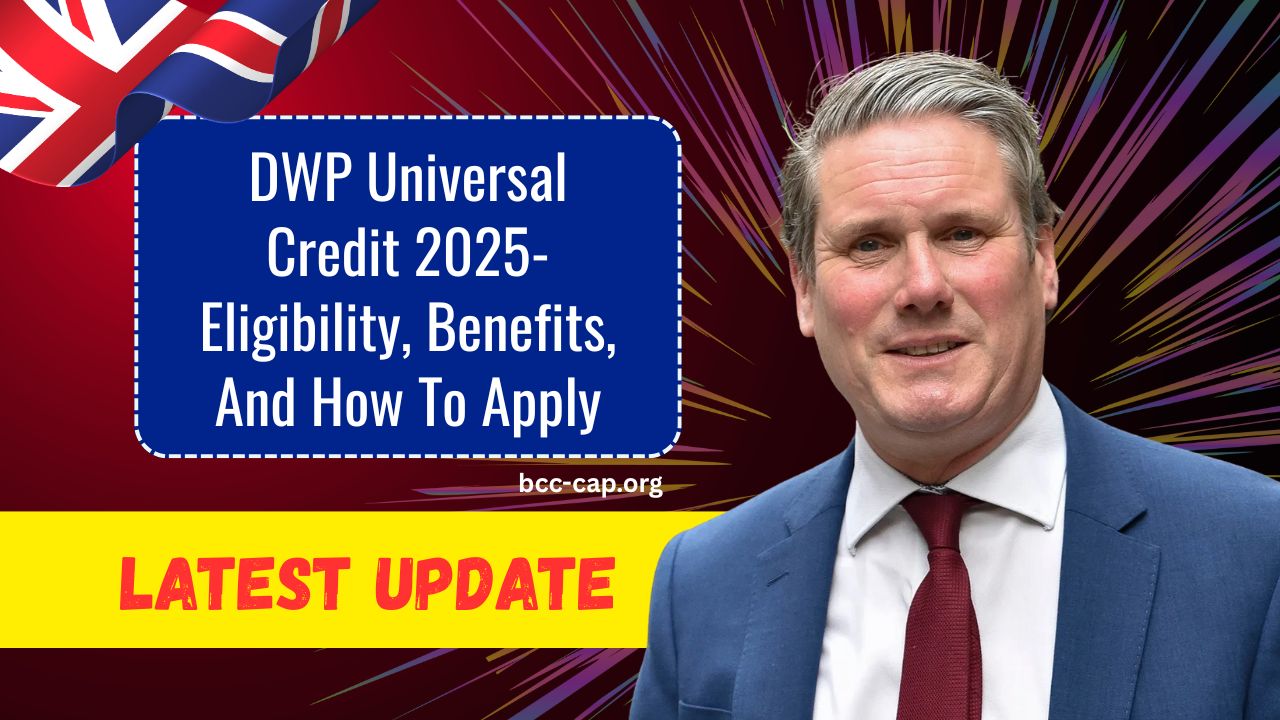The Department for Work and Pensions (DWP) continues to offer Universal Credit in 2025 as a vital financial support system for millions across the UK.
Designed to simplify the welfare system, Universal Credit merges several legacy benefits into one monthly payment for people who are unemployed, on a low income, or unable to work due to illness or disability.
This guide explains who is eligible for Universal Credit in 2025, the benefits available, and how to apply without missing out.
What Is Universal Credit?
Universal Credit is a monthly financial aid payment that combines six different benefits into one, including:
- Income Support
- Housing Benefit
- Jobseeker’s Allowance
- Employment and Support Allowance
- Working Tax Credit
- Child Tax Credit
It is tailored to support low-income households, job seekers, and those with health conditions.
Payments are typically made once a month, though in Scotland it may be twice a month.
The system is responsive, meaning it adjusts to your earnings automatically each month.
Universal Credit 2025 Overview
| Feature | Details |
|---|---|
| Country | United Kingdom |
| Administered By | Department for Work and Pensions (DWP) |
| Payment Name | Universal Credit |
| Beneficiaries | Eligible UK residents |
| Amount | Varies based on income, circumstances |
| Payment Schedule | Monthly (Twice a month in Scotland) |
| Category | Government Financial Support |
| Application Method | Online at gov.uk |
Eligibility Criteria for Universal Credit 2025
To qualify for Universal Credit in 2025, you must meet the following key criteria:
- Residency and Age: Be a UK resident aged 18 or over (16-17 in certain special cases).
- Savings: Must have £16,000 or less in savings.
- Income: Applies to both employed and self-employed individuals on a low income.
- Health and Caring Responsibilities: Eligibility is extended to those with disabilities, long-term illnesses, or carer duties.
- Couples: Must apply jointly, and combined income and savings will be assessed.
Students can also apply under special conditions such as having a child, a disability, or limited work capacity.
Universal Credit 2025 Payment Amounts
Your monthly payment will depend on your circumstances. Here’s a breakdown of the basic allowance:
| Household Situation | Monthly Standard Amount |
|---|---|
| Single under 25 | £316.98 |
| Single 25 or over | £400.14 |
| Couple both under 25 | £497.55 |
| Couple both 25 or over | £628.10 |
Additional elements can be added:
- Child Payments: Up to £292.81 per child
- Disability Supplements: Between £158.76 and £495.87
- Childcare Support: Up to 85% of costs, capped at:
- £1,031.88 for one child
- £1,768.94 for two or more children
How to Apply for Universal Credit in 2025
You must apply online through the Universal Credit section of gov.uk. Ensure your information is accurate to avoid delays.
Information needed:
- National Insurance number
- Bank or building society account details
- Proof of identity (passport, driver’s license)
- Income and savings details
- Housing costs
If you do not complete your application within 28 days, you’ll need to restart the process.
You may also get assistance via the Citizens Advice Help to Claim service or by calling the Universal Credit helpline.
Universal Credit in 2025 continues to be a critical resource for low-income individuals, families, and those unable to work.
Whether you’re newly unemployed, dealing with a long-term illness, or struggling to make ends meet, this benefit can provide crucial financial relief.
It’s essential to understand the eligibility requirements, be aware of the payment amounts, and follow the application process carefully to receive your benefits without delay.
FAQs
Can I claim Universal Credit if I’m working?
Yes, many employed and self-employed individuals on a low income qualify. Payments adjust according to your earnings.
Will Universal Credit affect my other benefits?
Yes, it replaces six major benefits. However, benefits like Carer’s Allowance or PIP will continue separately.
How long does it take to get the first payment?
It usually takes around five weeks from the date of your application to receive the first Universal Credit payment.

